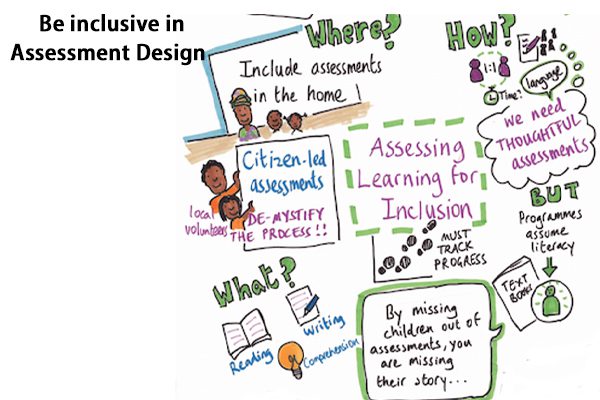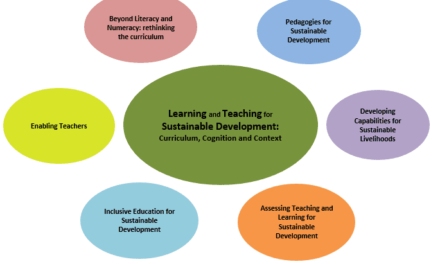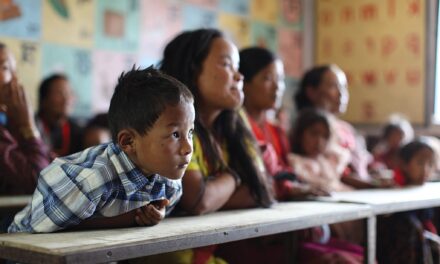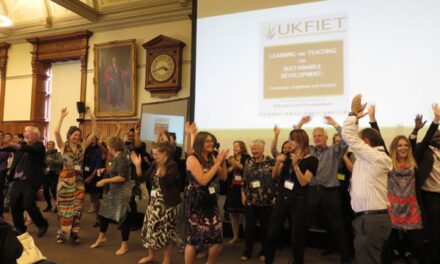Inclusive education: EdTech, learning assessment and refugees and displaced populations
Part 3 of Summary of thematic strand from UKFIET conference, September 2017
Thematic convenors: Susy Ndaruhutse, Education Development Trust and Amy Parker, Relief International
Welcome to the third and final blog on reflections coming out of our Inclusive Education conference sub-theme. Last week, we looked at disability and the need to involve teachers in identifying ways to best include learners with specific educational needs, as well as the need to measure disability holistically. We also looked at gender issues, including early marriage and school-related gender-based violence (SRGBV).
This instalment focuses on EdTech, learning assessment and refugees and displaced populations.
EdTech
EdTech and learning: Handing children hardware unrelated to curriculum doesn’t result in learning outcomes. EdTech needs to be tied to the curriculum and pedagogy to be effective. Group learning with 3-4 children to 1 device results in improved outcomes (Session 9D, Michaelle Tauson, Save the Children).
Cost-effectiveness of EdTech: We don’t pay enough attention to whether EdTech is actually cost effective and whether it presents value for money. We need to ask what the opportunity costs are, what has succeeded or failed and why, what are the most ethical (not opportunistic) interventions, how do we stop piloting, learn and move forward with sustainable solutions and how do we use EdTech ethically and effectively in protracted crises situations? Novelty sometimes impacts the level of engagement rather than genuine sustained usage (Session 9D, Michaelle Tauson, Save the Children).
Complexity of EdTech: Simple solutions cannot solve complex problems. Most software isn’t designed using peer reviewed research or aligned to the local context. EdTech developers don’t use evaluations or learnings from the past. We need to be more critical, collaborative and put the needs of the children first. We know some of the barriers in terms of going from pilot to scale: finance, regulatory barriers but we don’t know much beyond these barriers. What evidence is available? (Session 9D, Michaelle Tauson, Save the Children).
Learning assessments
Role of learning assessments in making learning central to life: Learning assessments in developing countries have an additional role beyond monitoring learning – bringing learning to the centre in schools, homes, communities and to shift the national education priority to learning (Session 5A, Wilima Wadhwa, PAL Network/ASER Centre).
Exclusive approaches to assessment: Measuring learning with pen and paper tests assumes the child already knows how to read and write (Session 5A, Wilima Wadhwa, PAL Network/ASER Centre).
Data and assessment on learning: PISA and TIMMS are no longer a game changer, they just put the top 50 nations on a scale. Where is data content coming from for developing countries? We need more quality data from low-income countries. They may not all come from national assessments, rather from other secondary sources (Session 5A, Ian Attfield, DFID).
Everyone caring about learning: We need to take learning out of the domain of the experts and make it relevant and meaningful to all (Session 5A, Wilima Wadhwa, PAL Network/ASER Centre).
Need for a global framework to report on learning: We need to develop a conceptual agreement, procedural standards and reporting scales and benchmarks. A fit-for-purpose approach to international monitoring must be achieved that supports consistency in reporting on outcomes whilst being flexible to accommodate a variety of approaches (Session 5A, Silvia Montoya, UNESCO UIS).
Refugees and displaced populations
Long-term interventions are needed for refugees and displaced populations: We need to accept that support is not going to be only short-term and refugees will need integrating into national systems, but in a flexible way that allows for portable learning (Session 8D).
Alternative learning and catch-up: We need to recognise the shame and stigma associated with the culture of ‘catch-up’ in some contexts (e.g. Rwanda), the variation in quality of programmes and that this is a complex education journey (Session 5D, Miho Taka, Coventry University).
Long-term sustainability and working with multiple stakeholders: Often, when donor money is gone, projects end. How can we work with multiple stakeholders to ensure the long-term delivery of successful interventions (Session 5K)?
Mother-tongue vs multiple languages of instruction: The mother-tongue based multi-lingual education model, in line with international evidence, has been effective in promoting participation and learning outcomes. However, there are some wider issues around language and integration, particularly for host countries of refugees/displaced people. We need to move away from the idea that language of instruction should be mono-lingual and embrace the idea of multi-lingual languages of instruction (Session 3J, Julie Nge and Session 5K).
And with this, we conclude our series of three blogs from the Inclusive Education conference sub-theme at UKFIET 2017. We hope it has done justice to the wealth and variety of presentations from the conference. Do return to the website and app to access the presentations and papers. Thanks to the assistance of the conference rapporteurs.
Inclusive education for sustainable development – Part 1
Inclusive education: disability, textbooks and gender – Part 2





